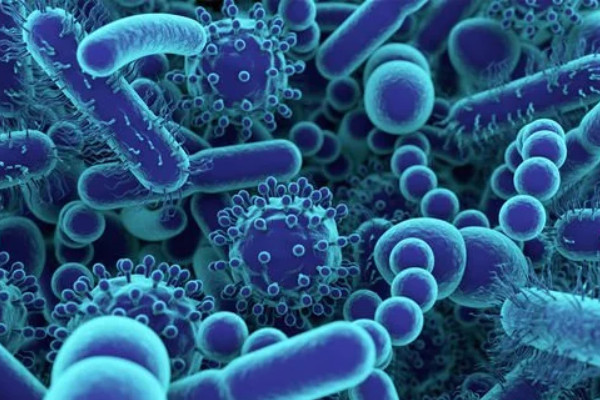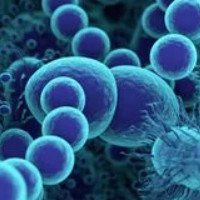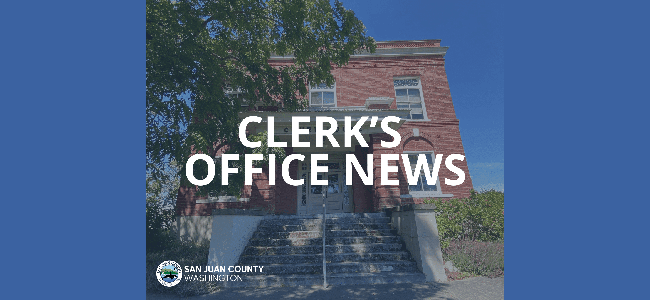— from Frank James MD, San Juan County Health Officer; Mark Tompkins, Director, San Juan County Health & Community Services; Brendan Cowan, Director, San Juan County Department of Emergency Management —

Coronavirus is on all of our minds, and for good reason. We are living through a global public health crisis that has the potential to become a pandemic in the weeks or months to come. There’s much we still don’t know, and with that uncertainty comes fear. Despite the fact that the current risk of coronavirus in San Juan County is low, it makes perfect sense to be on edge.
In this article we will take a very complex and fast moving situation and share some key understandings that we hope will be useful to our island community. We don’t know how this event will play out, but there are some facts to know and some basic steps we can all take, regardless of the exact spread of the disease.
At this point, we may risk being accused of sowing even more fear. But there’s also a risk of being too late and missing a critical opportunity to prepare. We’d rather be guilty of overplaying something that turns out less serious than the other way around. We’re confident that this situation won’t be as bad as our darkest fears are telling us; it rarely is. We also don’t want to put our heads in the sand.
First off, and this is really important: social distancing and quarantine efforts are as much (or more) about slowing the spread of the disease as stopping it. Sure, stopping it is ideal, but if the coronavirus becomes widespread (as it likely will be), we want to do all we can to slow transmission. Why? Because slowing the pace of the disease buys time for our personal and civic response systems to prepare, it lets us work on developing medicine and vaccines, and most importantly, it spreads out the number of patients over a longer time, lessening the strain on our healthcare system. Understanding the critical importance of slowing the spread is essential to comprehending and hopefully supporting the current
and future public health response.
If at some point down the road there is a need to close schools, limit public gatherings, or restrict travel, it will be done with the ultimate goal of saving lives. And not just a few lives, but a large number of people’s lives may depend on our ability to successfully implement these difficult decisions.
That said, these moves to limit social contact are incredibly challenging for a community — especially the decision to close schools. Starting to prepare now for possible (but not certain) impacts is key. We’re in a window of opportunity of uncertain duration to make some practical preparations. We must make the most of it, and also remember that if a severe pandemic does not happen, the efforts you’re making will also help ensure you’re ready for a major earthquake (as all islanders should be!).
We think being thoughtful, considered, rational, and engaged is the right approach. Things are likely less terrible than they seem on the front page, but at the same time there is certainly reason for concern. Finding that common-sense middle ground between anxiety and denial is the goal that enables us all to act with useful purpose.
Individual and community preparations will focus on three tasks:
- Reducing each person’s chance of getting sick;
- Helping households with basic survival needs during a pandemic;
- Minimizing and coping with larger societal disruption.
With that in mind, we want to share some specific best practices and places to focus your attention:
- Have supplies on hand to last a few weeks without needing to leave your house. There’s no need for panic buying or doing it all at once. Just start to build up your supplies. The County DEM has a nice calendar that highlights what is needed for two weeks of preparedness. Start with two weeks, but aim for a month. If you can build up your supply of essential medications, do so.
- If you haven’t gotten your seasonal flu shot, now is the time to do so. Symptoms of the flu are very similar to the symptoms of novel coronavirus. Also, flu has killed far more people globally and within the US than novel coronavirus. Getting a flu shot protects you, those around us who are most vulnerable, and reduces the burden to our health care system at a time when we are gearing up to prepare for major demands on an already stretched network.
- Hand-washing doesn’t guarantee immunity. But it’s easy, it’s under your control, and it has no significant downside. Also focus on not touching your face. Seriously. Do. Not. Touch. Your. Face. We know it is hard. But practice. Make it a game. Give your kids a quarter every time they catch you doing it. Whatever it takes.
- Now is the time to think a bit about how you will care for children who have to stay home due to possible school closures. Do you have family, neighbors, or other options for childcare? Resist the temptation to informally assemble kids together in larger groups. That’s an understandable solution, but in the end defeats the purpose of the closure.
- If you manage a business or organization, think through how you can support your staff working remotely. Consider what steps you should take to prepare for employee absences or loss of customers. Start to think about how you can continue to operate your business while minimizing social contact. There aren’t always answers for every business, but sometimes there are- and those are critical to identify ahead of time.
- If you are sick, stay home. This one is important. We should do it all the time, regardless of coronavirus, but we don’t. Coming to work or school sick is selfish, don’t do it.
- If you are experiencing fever and a cough, AND you have returned from another country within the last two weeks call your healthcare provider and alert them of your symptoms and travel history before seeking medical attention. They will take appropriate precautions to prevent further spread of the illness. You probably won’t have coronavirus, but it is good to give your provider some advance warning regardless.
We know there are no magical solutions to any of this, and there are lots of incredible challenges involved in much of what we’re talking about. Few of us will ever get to 100% prepared, and that’s OK.
The main thing is to do what you can, start doing it methodically now, and work to build a thoughtful reasonable culture of preparedness and common sense in the islands that will outlast this crisis.
We’d like to direct islanders to the Health and Community Services Coronavirus Page for links to up to date information. And please feel free to contact the Health and Community Services Coronavirus Hotline at 360-370-7500 should you have specific concerns or questions that we might be able to help you with.
We will continue to share regular articles to share our sense of the situation, detail actions being taken by your local government, and answer questions we’re hearing from our island community. Working together during uncertainty as this global outbreak unfolds, there is much we can do locally to keep our community healthy.
**If you are reading theOrcasonian for free, thank your fellow islanders. If you would like to support theOrcasonian CLICK HERE to set your modestly-priced, voluntary subscription. Otherwise, no worries; we’re happy to share with you.**








This is a long but worthwhile read. Doesn’t answer all questions, but a good start and at least reassures that local government is paying attention. Look forward to more of this sort of info.
This is so well written and so clear. Every islander should have this information.
Thank you to the San Juan County Health and Emergency officers for this informative article about COVID-19 (novel coronavirus). The recommendations are indeed “common sense”, like hand-washing and not touching one’s face, and it’s insightful that the authors acknowledge that there are “incredible challenges” in being 100% adherent to all of the suggestions. These suggestions have advanced our thinking in what we each can do to protect our personal and the public’s health. However, sadly, most of the suggestions are not practical for those living day to day without adequate resources, health insurance, food security, or with other tough realities. This results in advice that does not empower or assist the less fortunate living in SJC to participate in self- and community-protection on the issue of infectious disease transmission.
Having 2-4 weeks of emergency supplies on hand is only a dream for those who don’t even have enough food, soap, or gasoline on hand to get through the week. How can community services and neighborly assistance be engaged to be sure that those of us with more can ensure that those with less are also well-positioned for surviving social isolation? Let’s brainstorm some ideas.
Those without health insurance or a healthcare provider are often unable to access even the simplest healthcare services and commodities the rest of us take for granted. Are there programs, pharmacies, and clinics on our islands that will make the influenza vaccine free, and be willing to answer phone calls from county residents who need to inquire about their symptoms? Are there arrangements made with our ambulance services so that someone coming forward with coronavirus symptoms won’t be evacuated to a hospital and then saddled with a medical bill that wipes out years of trying to get back on one’s financial feet? It would be great to know what the county’s health and emergency preparedness leaders are doing to be pro-active with the necessary negotiations and persuasion required to make the system work for middle- and low-income and undocumented SJC residents that enable them to participate in the necessary healthcare practices.
Staying home from work, or finding non-group (or any!) childcare is just not possible for most lower-income workers. Their jobs are usually without protections for paid-time-off and besides, their labor is generally manual (i.e., done by hand, not remotely – even IF they even have a mobile phone connection or computer with internet). Being able to call in sick for work, or to stay home with kids whose schools are closed, is incomprehensible for most low-wage and ‘under-the-table’ workers. Thanks to the authors for putting the question out there about how family and neighbors might be able to help. Now let’s broaden and deepen the conversation. Are the county’s home owners (for domestic help), business owners, chambers of commerce, schools, and neighbors willing and able to make exceptional accommodations and offer special assistance in the interest of public health?
Lastly, clicking on the link at the end of the article opens the (English-only?) SJC coronavirus webpage. There are several helpful links, which open state and federal agencies’ websites. Some of those websites have Spanish (and other language) links for page translation. Is it possible for SJC to indicate which pages are available in Spanish or other languages so people who are more comfortable with a language other than English can be encouraged to do some more clicking? COVID-19 doesn’t recognize language barriers, which means we need to communicate with as many people as necessary. Perhaps the SJC website could link to the King County Public Health website that has a fact sheet in 11 languages. https://kingcounty.gov/depts/health/communicable-diseases/disease-control/novel-coronavirus.aspx
This virus could turn out to be a scary one, and it’s going to get worse before it gets better. But if our county leaders and residents expand our empathy and thoughtfulness towards those living among us who are on the margins, our community will come out of this even stronger and better.
Karen Hayes extensive comment, the inability of the Orcas PHD to figure out which way to turn and the disrepair we find oourselves in as a nation all point to the sooner the better need for a single payer system in this country.
Either that or we comntinue alongh thisd “Every organism for itself” trajectory righ up to the graveyard. According to vclass, of course.
I hope i dont get coronavirus